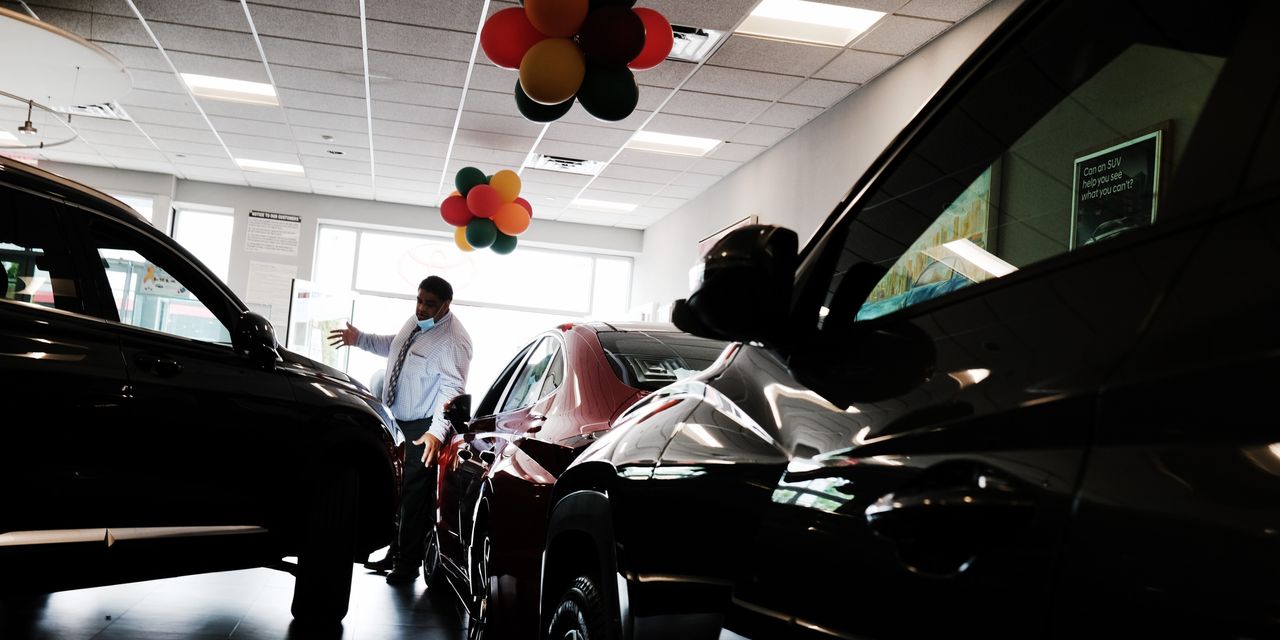
Financially, your car is behaving more like your home right now, bringing new opportunities and hard-to-foresee risks.
Used-vehicle values have broken records over the past year, with inflation running at an unprecedented 24%, according to the latest official data. This is painful for car buyers, but there is a less-discussed flip side: It is a great time to be a car owner.
American car loans resemble home loans, but in normal times the assets behave differently. Typically, homes appreciate in value whereas vehicles depreciate. This has the effect that car owners often have negative equity in their car, meaning they owe more than the car is worth. While this would be a stressful situation for homeowners—and their lenders—it is almost routine for car owners. People often make up the difference when they trade wheels, either with cash or extra debt.
But these aren’t normal times. As used-car values have rocketed, the proportion of car loans that are underwater has fallen dramatically. This can be seen from trade-in values. The percentage of vehicles that had negative equity when traded was 17.6% in September, the lowest since 2009, according to car-shopping data website Edmunds. This number usually hovered above 30% in the years before the pandemic.
SHARE YOUR THOUGHTS
Have you tried to buy or sell a used car during the pandemic? Join the conversation below.
In practical terms, this means cars can be treated a bit like homes during a housing boom. Many consumers may benefit from refinancing, since the extra equity in their vehicle may qualify them for a lower interest rate. And it is a sensational time to downsize or reduce the number of cars you own. Anyone with a 2014 model year is particularly fortunate: Average transaction prices involving seven-year-old vehicles were 38% higher in September than a year before, Edmunds found.
It is also a nice time to be a car lender. The value of collateral has soared, and delinquencies are low, perhaps because consumers received cash from the government during the pandemic. About 1.3% of borrowers were behind on their payments at the 30-day mark in the second quarter, according to Experian, down from 2% in the same period of pre-pandemic 2019.
The clearest losers in this situation are those who also feature in the narrative of housing booms: first-time buyers. All the more so since car market conditions will presumably normalize—though that is showing every sign of taking a long time.
For the past two months, consumers have paid above the manufacturer’s suggested retail price for new vehicles, on average. It is hard to imagine these vehicles performing as well in the secondhand market as those bought during the more typical years of abundance. There could be a bulge in negative-equity trade-ins in a few years’ time.
Perhaps the biggest risk in the current situation is simply uncertainty: Nobody has experience of a car market like this, and what unexpected outcomes it might lead to. Rising asset prices have a way of appearing mainly to create winners. Losers tend to crop up further down the road.
Write to Stephen Wilmot at [email protected]
Heard Stock-Picking Leaderboard
Copyright ©2021 Dow Jones & Company, Inc. All Rights Reserved. 87990cbe856818d5eddac44c7b1cdeb8








